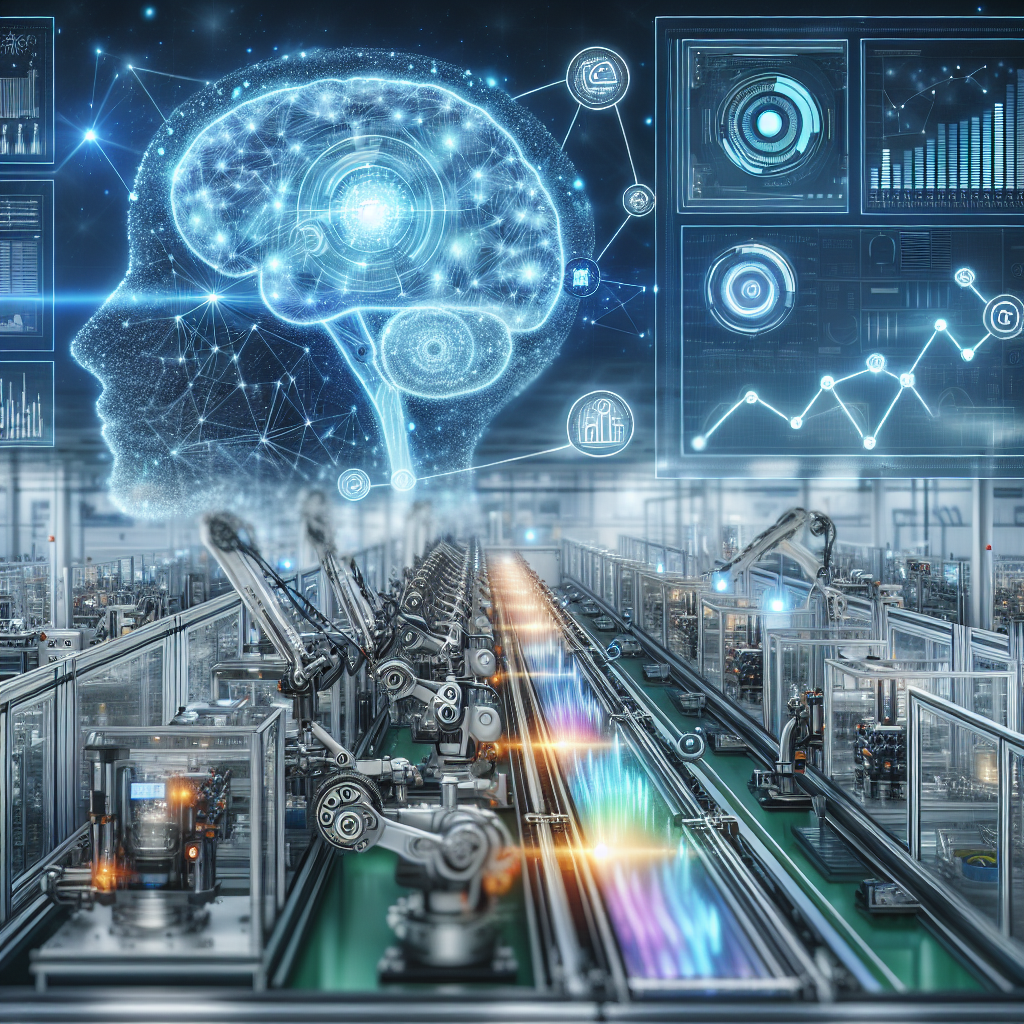AI Integration in Manufacturing: A New Era of Efficiency
In recent years, artificial intelligence (AI) has made significant strides in transforming the manufacturing industry. From predictive maintenance to quality control, AI integration has revolutionized the way factories operate, leading to increased efficiency, reduced costs, and improved productivity. This article will explore the various applications of AI in manufacturing and the benefits it brings to the industry.
Applications of AI in Manufacturing
AI has a wide range of applications in the manufacturing sector, some of which include:
1. Predictive Maintenance: One of the key areas where AI has made a significant impact is in predictive maintenance. By using machine learning algorithms, AI can analyze data from sensors and other sources to predict when equipment is likely to fail. This allows manufacturers to schedule maintenance before a breakdown occurs, reducing downtime and increasing productivity.
2. Quality Control: AI can also be used to improve quality control processes in manufacturing. By analyzing images and data from production lines, AI algorithms can detect defects and anomalies that may be missed by human inspectors. This helps manufacturers to identify and address quality issues early on, ensuring that only high-quality products are shipped to customers.
3. Supply Chain Optimization: AI can help manufacturers optimize their supply chains by analyzing data from suppliers, transportation providers, and other sources to identify inefficiencies and bottlenecks. By using AI to optimize inventory levels, production schedules, and distribution routes, manufacturers can reduce costs and improve delivery times.
4. Process Optimization: AI can also be used to optimize manufacturing processes by analyzing data from production lines and equipment to identify opportunities for improvement. By using AI to optimize processes, manufacturers can increase efficiency, reduce waste, and improve overall productivity.
Benefits of AI Integration in Manufacturing
The integration of AI in manufacturing offers several benefits to manufacturers, some of which include:
1. Increased Efficiency: By automating repetitive tasks and optimizing processes, AI can help manufacturers increase efficiency and reduce costs. AI can also help manufacturers improve decision-making by providing real-time insights and recommendations based on data analysis.
2. Improved Quality: AI can help manufacturers improve product quality by detecting defects and anomalies early on in the production process. By using AI for quality control, manufacturers can reduce the number of defective products and improve customer satisfaction.
3. Reduced Downtime: By using AI for predictive maintenance, manufacturers can reduce downtime by scheduling maintenance before equipment failures occur. This helps manufacturers avoid costly breakdowns and keep production lines running smoothly.
4. Enhanced Safety: AI can also help improve safety in manufacturing by analyzing data from sensors and other sources to identify potential hazards and risks. By using AI to monitor safety conditions in real-time, manufacturers can prevent accidents and ensure a safe working environment for employees.
FAQs
Q: How can AI help manufacturers reduce costs?
A: AI can help manufacturers reduce costs by increasing efficiency, improving quality, and reducing downtime. By automating repetitive tasks and optimizing processes, AI can help manufacturers save time and resources. AI can also help manufacturers improve decision-making by providing real-time insights and recommendations based on data analysis.
Q: What are some common challenges in implementing AI in manufacturing?
A: Some common challenges in implementing AI in manufacturing include data quality issues, lack of expertise, and resistance to change. Manufacturers may struggle to collect and analyze data from various sources, or they may not have the necessary skills to implement AI solutions. Additionally, some employees may be resistant to adopting AI technology due to fears of job displacement or job insecurity.
Q: How can manufacturers ensure the security of AI systems in manufacturing?
A: Manufacturers can ensure the security of AI systems in manufacturing by implementing robust cybersecurity measures, such as encryption, authentication, and access controls. Manufacturers should also regularly update and patch AI systems to protect against vulnerabilities and cyber threats. Additionally, manufacturers should train employees on best practices for cybersecurity and monitor AI systems for any suspicious activity.
In conclusion, AI integration in manufacturing is ushering in a new era of efficiency and productivity. By leveraging AI technology for predictive maintenance, quality control, supply chain optimization, and process optimization, manufacturers can streamline operations, reduce costs, and improve overall performance. With the right expertise and commitment to innovation, manufacturers can harness the power of AI to stay competitive in today’s fast-paced manufacturing industry.

